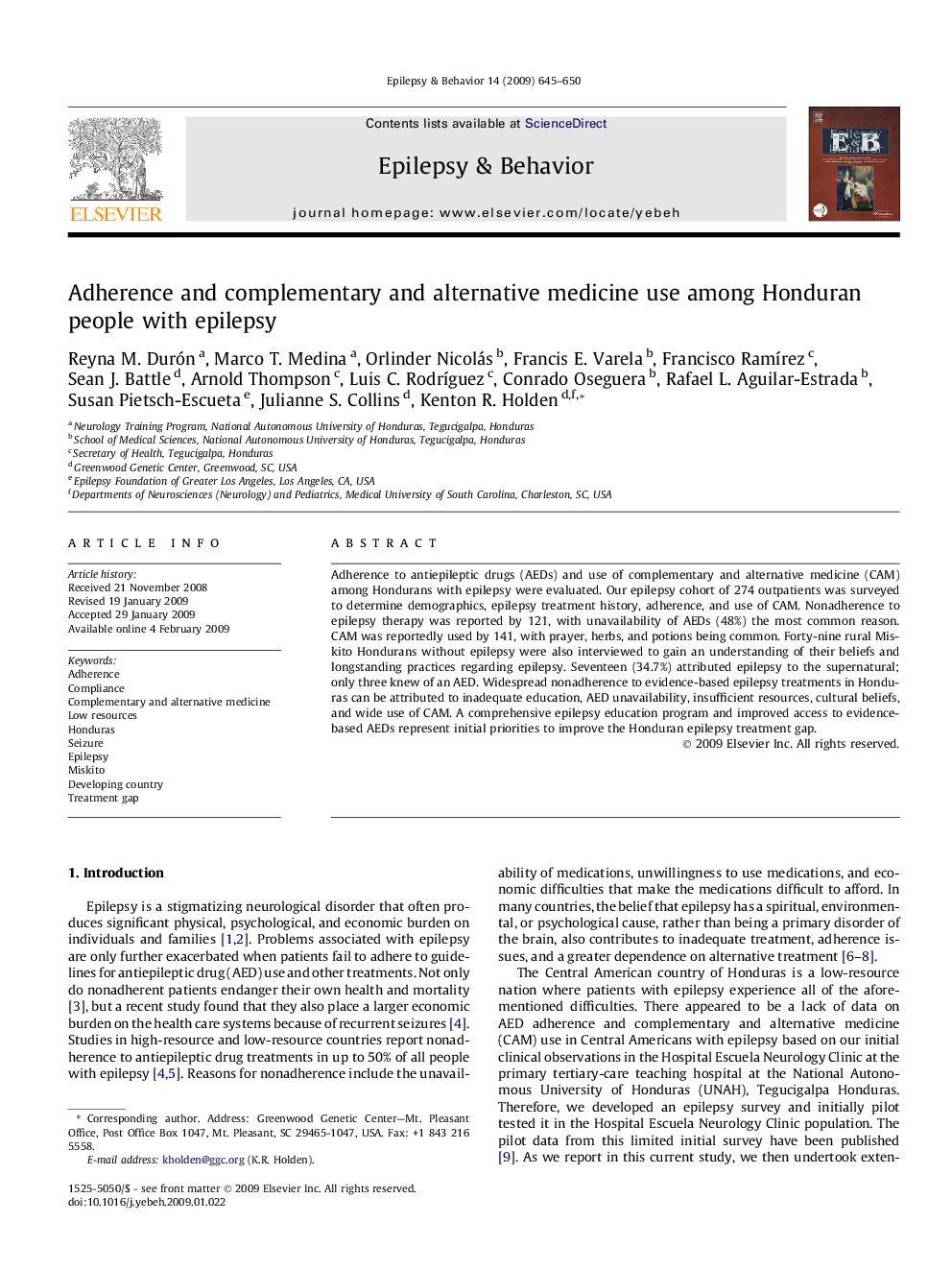| Article ID | Journal | Published Year | Pages | File Type |
|---|---|---|---|---|
| 3050819 | Epilepsy & Behavior | 2009 | 6 Pages |
Adherence to antiepileptic drugs (AEDs) and use of complementary and alternative medicine (CAM) among Hondurans with epilepsy were evaluated. Our epilepsy cohort of 274 outpatients was surveyed to determine demographics, epilepsy treatment history, adherence, and use of CAM. Nonadherence to epilepsy therapy was reported by 121, with unavailability of AEDs (48%) the most common reason. CAM was reportedly used by 141, with prayer, herbs, and potions being common. Forty-nine rural Miskito Hondurans without epilepsy were also interviewed to gain an understanding of their beliefs and longstanding practices regarding epilepsy. Seventeen (34.7%) attributed epilepsy to the supernatural; only three knew of an AED. Widespread nonadherence to evidence-based epilepsy treatments in Honduras can be attributed to inadequate education, AED unavailability, insufficient resources, cultural beliefs, and wide use of CAM. A comprehensive epilepsy education program and improved access to evidence-based AEDs represent initial priorities to improve the Honduran epilepsy treatment gap.
